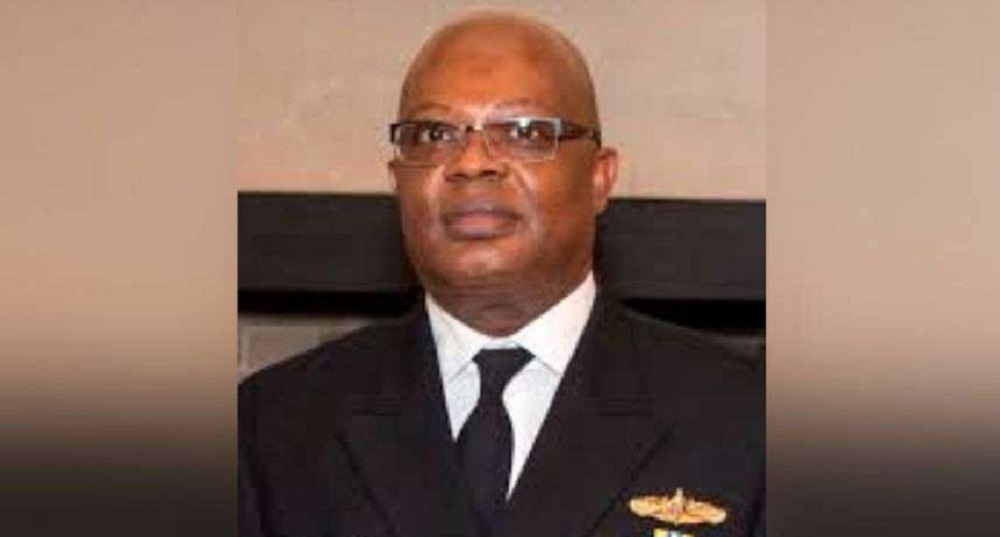News
Electricity consumption is not a fundamental right, NERC tells court

The Nigeria Electricity Regulatory Commission (NERC) has said that electricity consumption is not a fundamental right that can be challenged by any consumer in Nigeria.
NERC’s legal team’s position is against a suit which had asked the Federal High Court Abuja to restrain it and the Abuja Electricity Distribution Company (AEDC) from giving effect and continuing with the implementation of multi-year tariff order 2024 which classified electricity consumers into Band A to E.
Nairametrics previously reported that he restraining requests was filed by Barrister Festus Sanmi Onifade, who stated he sued for himself and on behalf of other consumers in suit no FHC/ABJ/CS/492/2024.
Applicant’s Case
In his affidavit in support of the originating summons dated April 16, 2024, Onifade contested the various power supply timelines set for residents in Nigeria, insisting that a 20-hour power supply to Band A residents alone amounts to preferential treatment and discrimination of other Nigerians.
He faulted the electricity price increment and downgrading insisting that he and other customers who are on B, C, D and E are seeing their fundamental right to freedom from discrimination being breached by the development.
He was of the view that the policy of classification by NERC allegedly gives a preferential treatment to Customers in band A over and above the Claimant and other customers in band B, C, D and E respectively.
The lawyer sought both interim and perpetual order, restraining NERC, AEDC and the Attorney-General of the Federation from continuing with the policy of classification of Nigerian customers to Band A, B, C, D and E by their location and increasing their tariffs.
NERC Responds
In its notice of preliminary objection seen by Nairametrics, NERC’s lawyers, Harry O. Ukaejiofor and Safiiya Mohammed, asked Justice Inyang Ekwo to strike out the suit.
They argued that the classification of electricity consumers into Band A, B, C, D & E does not amount to discrimination as outlined by the claimant.
“There are no fundamental rights to electricity, and the plaintiffs by this action erroneously seeking to enforce a customer/consumer right against his service providers and their regulator in the guise of a fundamental right, “ NERC stated in its processes.
NERC’s legal team further explained that there is no evidence that the claimant complied with the condition in Chapter IV of the NERC’s Customer Protection Regulations 2023.
NERC’s Customer Protection Regulations 2023 states that the claimant’s complaint should be entertained first by the Consumer Complaint Unit of the AEDC and the forum established by the NERC in Abuja before he can approach the court with his complaint.
News
INEC ought to have archived recall petition long ago-Senator Natasha

Senator Natasha Akpoti-Uduaghan on Thursday hailed the Independent National Electoral Commission (INEC) for rejecting a petition to recall her as the lawmaker representing Kogi Central Senatorial District.
The lawmaker, who was a guest on Channels Television’s Politics Today, said the electoral umpire should have thrown out the petition long before it did on April 3, 2025.
“I’m a lawyer. I’m a senator and I understand how Nigeria works. For me, the most important thing is this recall process has been stalled.
“I give kudos and credit to INEC even though I believe they should have thrown it away from the get-go.
“I think it was void ab initio because there is no law in the Electoral Act that says a petition should be discarded just because there is no address but again, what if the address is false?”
The Peoples Democratic Party (PDP) chieftain argued that most of the addresses provided in the petition for her recall were false because most houses in her district weren’t labelled.
Even though INEC did count 208,000 signatures, I bet you if they had gone into the verification stage, they would have struggled to even have 500 people come out to attest to signing that,” she added.
News
We’re putting together new 2025 Budget for Rivers-Ibas

…hosts Delegation Of Rivers NASS Caucus
The Administrator of Rivers State, Vice Admiral (Rtd) Ibok Ete Ekwe Ibas, has said that an appropriation bill for 2025 is being articulated to provide for critical development concerns in healthcare delivery, education, agriculture and infrastructure.
Vice Admiral (Rtd) Ibas also said that the anticipated budget will cater to creating more employment opportunities for Rivers people and advance delivery of technology in critical facets of public life.
The administrator gave the hint when he hosted the delegation of Rivers State caucus at the National Assembly, led by Dr Barinada Mpigi, the Senator representing Rivers South-East District, at Government House in Port Harcourt on Thursday.
Those on the delegation included Senator Allwell Onyesoh, the minority leader of the House of Representatives, Rep. Kingsley Chinda, Hon Dumnamene Dekor, Hon Solomon Bob, Hon Cyril Godwin Hart,
Hon Blessing Amadi, Hon. Felix Nwaeke, Hon Kelechi Nwogu, and Hon Victor Obuzor
Ibas said he has been resolute, since assumption of office, to restore law and order, and with support from the security agencies, an environment has been created where Rivers residents feel valued and safer.
The Administrator stated that the commitment is to make Rivers a model of peace in the comity of States, with a stable economy and citizens courageous to pursue their livelihood without fear or molestation.
“In addition to our peace building efforts, we are also focused on the economic stability and development of Rivers State.
“Since the Supreme Court verdict on the state’s budget, we have acted swiftly and decided to put together a new budget that reflects our commitment to healthcare, education, social services, and continued infrastructural development.
“We have worked diligently to ensure that the process is transparent, inclusive, and most importantly expedited. Our goal is to ensure that we do not lose any more time in making the necessary investments that will improve the lives of citizens.”
Vice Admiral (Rtd) Ibas stated: “The budget which is been finalized focuses on creating job opportunities and investing in key sectors such as agriculture, infrastructure, and technology.
“We understand the urgency of this initiative, and we are committed to ensuring that they are implemented without delay.”
The Administrator noted that to get the task done, the support of the legislators will be required as key representatives of Rivers State in the National Assembly.
He sued for their assistance in securing the necessary resources and legislative backing that would bring the initiative of his administration to fruition.
“Your partnership is critical to success in ensuring that Rivers State remains on the path of progress and enduring peace for future generations.”
He explained that in the face of the challenges that beset Rivers, which led to the State of emergency declared by President Bola Tinubu, dialogue, community engagement and reconciliation were deplored to build trust among the citizenry.
He noted that the people of Rivers State have shown incredible resilience and patience in the efforts taken so far to restore the State back to the path of peace and respect for the law.
Vice Admiral (Rtd) Ibas assured that his administration remains committed to achieving enduring peace for the state.
He said: “Beyond security, we have prioritised community engagements as a central part of our strategy. Dialogue, reconciliation, and inclusivity have been key to building trust among our people.
“We are determined to strengthen the bond of unity in Rivers State and to foster an environment where every citizen feels valued, heard, and respected. Together, we are making strides in ensuring that peace becomes a permanent feature of our state.”
Responding, Senator Barinada Mpigi, representing Rivers South-East District, said they are dedicated representatives of Rivers people at the National Assembly and resolved to support all efforts that will bring development to the State.
While commending the administrator for the modest successes he had achieved so far, Senator Mpigi pledged the support and cooperation of the legislators to ensure the return of the state on the path of law and order.
News
Just in: Shettima jets out to attend Senegal’s independence

Vice President Kashim Shettima has departed Abuja for Dakar, Senegal for official assignment.
The VP is expected to represent President Bola Ahmed Tinubu at the West African nation’s 65th Independence Anniversary celebrations.
Senegal marks its Independence Day on April 4 each year, commemorating its liberation from French colonial rule in 1960.
The annual celebration is a significant event featuring national parades, cultural displays, and ceremonies highlighting the country’s achievements and unity.
A statement issued on Thursday by Senior Special Assistant to the President on Media and Communications, Office of the Vice President, Stanley Nkwocha, said Shettima’s participation followed an official invitation from Senegalese President, Bassirou Diomaye Faye.
This underscored the strong diplomatic and economic ties between Nigeria and Senegal.
The two nations share longstanding relations, particularly within the Economic Community of West African States (ECOWAS), fostering cooperation on regional security, trade, and development initiatives.
The event is expected to reaffirm Senegal’s commitment to democratic governance and regional cooperation.
Vice President Shettima is scheduled to return to Nigeria immediately after the one-day celebrations, continuing his engagements in national development and diplomatic outreach.
-

 News10 hours ago
News10 hours agoNatasha: Kogi PDP hammers Ododo, reiterates unfeigned support for her
-

 Economy9 hours ago
Economy9 hours agoSEE Black Market Dollar To Naira Exchange Rate Today 3rd April 2025
-

 News17 hours ago
News17 hours agoRivers APC demands Fubara’s probe over ex-HoS allegations
-

 News5 hours ago
News5 hours agoJust in: “Ignore rumour mongers, there was no time I collapsed “-Wike asserts
-

 News5 hours ago
News5 hours agoCJ transfers Natasha’s case to Justice Nyako
-

 News8 hours ago
News8 hours agoJust in: INEC dumps recall petition against Sen Natasha
-

 Economy18 hours ago
Economy18 hours agoNaira rebounces against the dollar in parallel market
-

 News13 hours ago
News13 hours agoJust in: Finally, Trump imposes 14% tarriff on Nigeria oil, others





